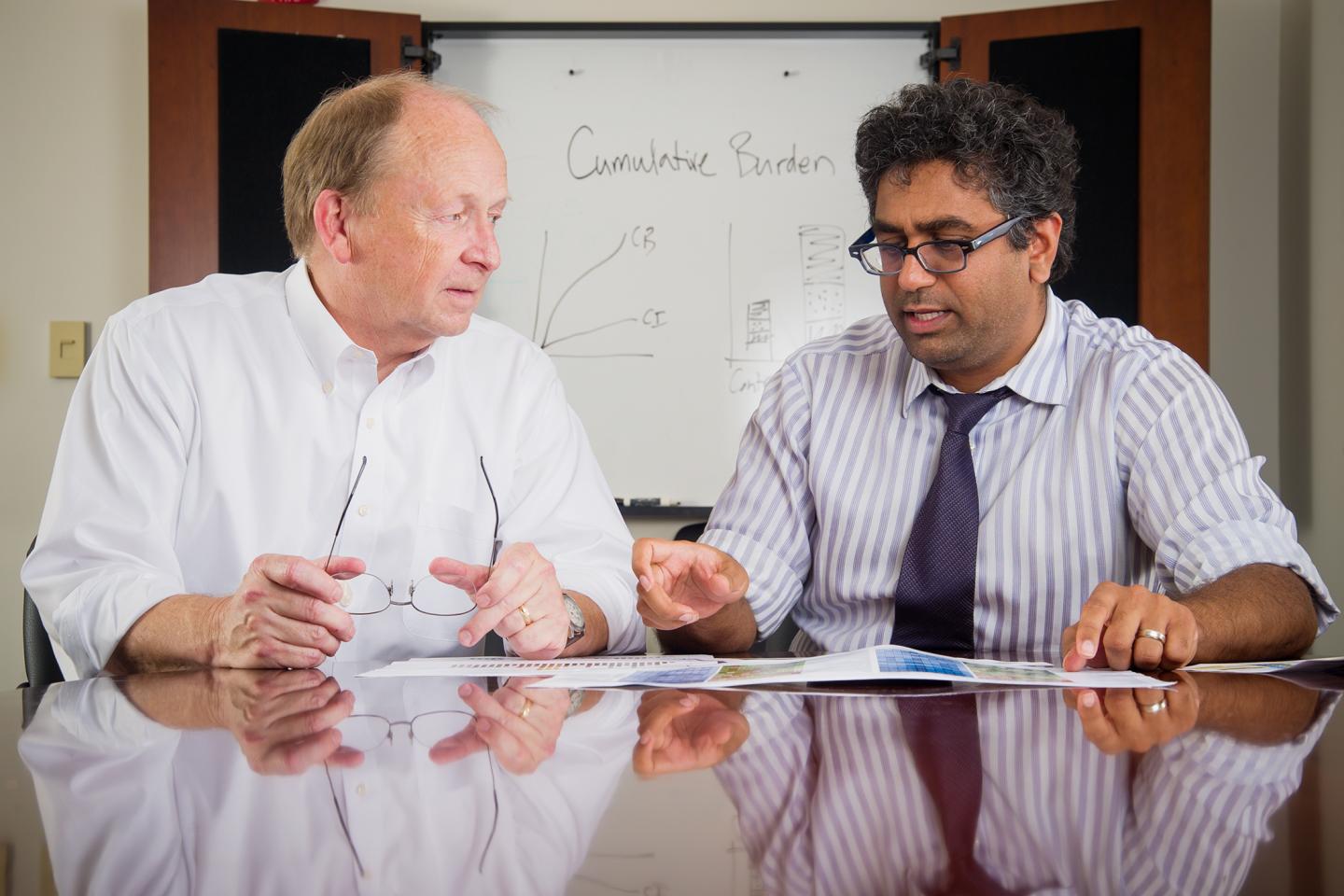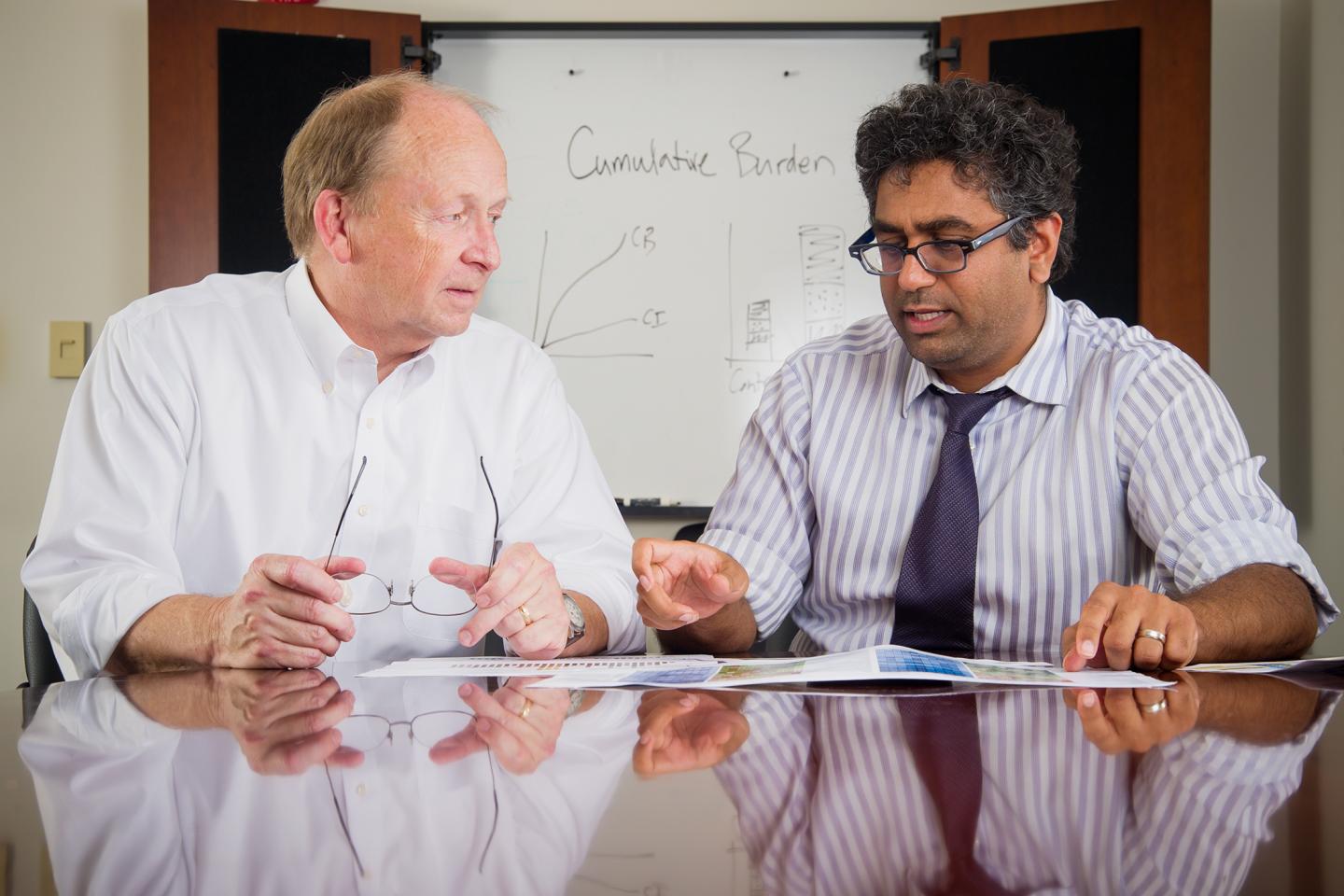
Credit: Seth Dixon / St. Jude Children's Research Hospital
The most complete assessment yet of chronic disease in adult survivors of childhood cancer found they have a nearly two-fold greater cumulative burden of chronic health problems than the general public. The St. Jude Children's Research Hospital study appears today in The Lancet and offers insights for improving health care delivery.
Researchers used a statistical method called cumulative burden to track the lifelong impact of 168 chronic health conditions on 5,522 St. Jude adult survivors of childhood cancer, most enrolled in the St. Jude Lifetime Cohort study (St. Jude LIFE), and 272 community volunteers with no history of pediatric cancer. By age 50, the average pediatric cancer survivor had 17.1 chronic health conditions, including 4.7 that were severe/disabling, life-threatening or fatal. In contrast, the community volunteers averaged 9.2 chronic health conditions, of which 2.3 fell into those same categories.
"The cumulative burden of chronic disease revealed in this analysis, along with the complexity and severity of chronic conditions some survivors experience, found childhood cancer survivors to be a vulnerable, medically complex population," said first and corresponding author Nickhill Bhakta, M.D., an assistant member of the St. Jude Department of Global Pediatric Medicine.
"The results suggest that childhood cancer survivors may benefit from the integrated, specialized health care delivery that is being tried for individuals infected with HIV or those with other complex, chronic health problems," he said.
The models include patient-centered medical homes, which aim to provide patients with comprehensive, coordinated services to address their medical and psychosocial needs. Currently, most adult survivors rely on primary care providers, in consultation with medical specialists, to coordinate care and ensure survivors receive recommended health screenings and follow-up care.
The U.S. is home to more than 420,000 childhood cancer survivors, a number that is expected to grow as cure rates improve and survivors live longer. St. Jude LIFE is a unique resource to identify, understand and begin to address the challenges survivors face. In this ongoing study, long-term childhood cancer survivors treated at St. Jude periodically return to campus for comprehensive clinical and functional tests and screenings.
"This study found that the average childhood cancer survivor has a cumulative burden of chronic disease that requires a significant time investment by health care providers to disentangle and manage–time that community providers are unlikely to have," Bhakta said. Previous studies from researchers at St. Jude and other centers have reported that survivors often have unrecognized and unmet health care needs. Historically, survivors have also struggled to maintain health insurance and access needed care.
The study is the first to quantify and compare the cumulative burden of chronic disease in a clinically assessed group of childhood cancer survivors and community volunteers matched for age and sex. Cumulative burden was calculated using data from the comprehensive clinical assessments of 3,010 survivors enrolled in St. Jude LIFE and the 272 community volunteers. Rather than counting a health problem once at diagnosis, cumulative burden tracks health conditions as they occur, capturing subsequent heart attacks, cancer diagnoses or other recurring conditions that are missed by other statistical approaches.
The analysis also included 21 variables related to survivors' cancer treatment, including cumulative doses of radiation and chemotherapy agents. Statistical methods were used to calculate the cumulative burden of an additional 2,512 long-term St. Jude cancer survivors.
The survivors' cumulative burden varied substantially, based in part on survivors' age at diagnosis, cancer treatment and treatment era. Second cancers, cardiovascular disease and endocrine disorders were significant contributors to survivors' cumulative burden.
A Web-based tool for calculating the cumulative burden of individual patients is in development to help patients and health care providers better understand and manage health care for individuals. Cumulative burden should also help researchers designing clinical trials understand the risks and benefits of different treatment strategies.
###
The senior authors are Leslie Robison, Ph.D., chair of the St. Jude Department of Epidemiology and Cancer Control, and Yutaka Yasui, Ph.D., a member of the St. Jude Department of Epidemiology and Cancer Control. The other authors are Kirsten Ness, Malek Baassiri, Hesham Eissa, Frederick Yeo, Wassim Chemaitilly, Matthew Ehrhardt, Johnnie Bass, Michael Bishop, Kyla Shelton, Lu Lu, Sujuan Huang, Zhenghong Li, Eric Caron, Jennifer Lanctot, Carrie Howell, Timothy Folse, Daniel Green, Daniel Mulrooney, Gregory Armstrong, Kevin Krull, Tara Brinkman, Raja Khan, Deo Srivastava and Melissa Hudson, all of St. Jude; Qi Liu of the University of Alberta, Canada; and Vijaya Joshi, of the University of Tennessee Health Science Center, Memphis.
The study was supported in part by grants (CA195547, CA21765) from the National Cancer Institute, the St. Baldrick's Foundation and ALSAC, the fundraising and awareness organization of St. Jude.
Media Contact
Corey Carmichael
[email protected]
901-595-0222
@StJudeResearch
http://www.stjude.org
Original Source
http://www.stjude.org/cumulative-burden





